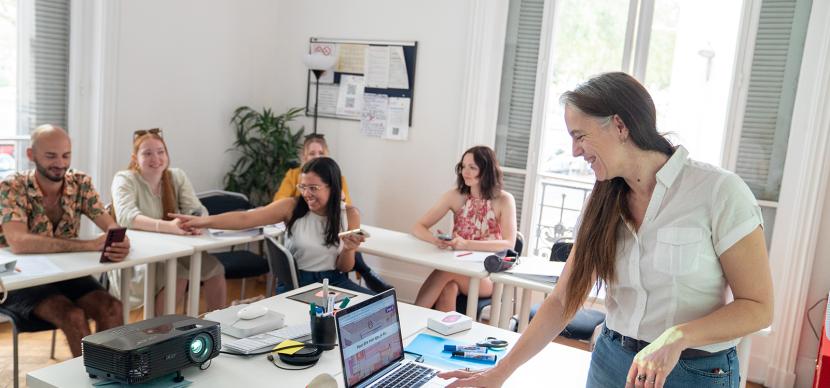Full infinitive and bare infinitive | Grammar Differences

The infinitive form of a verb is the verb in its basic form, with or without the particle ‘to’. It is the version of the verb that appears in the dictionary.
Types of infinitive
The infinitive without 'to' is called the bare infinitive, or the base form of a verb. This is the verb’s most basic form.
- talk
- sleep
- have
- think
The infinitive with to is called the full infinitive, or the to-infinitive.
- to talk
- to sleep
- to have
- to think
TOP TIP – When you use a full infinitive verb, the ‘to’ is part of the verb, not a preposition. An infinitive verb is never conjugated.
‘They went from walking to running really quickly”
You may think that ‘to running’ is an infinitive but the ‘-ing’ ending means it is not. This is a gerund.
Using the bare infinitive
- The bare infinitive is used as the main verb after the auxiliary verb ‘do’, or most modal auxiliary verbs ‘should, can, will, etc.’
I should do my English homework.
You can play the tambourine. - The bare infinitive is also used after common verbs of perception with a direct object (watch, hear, feel), and common verbs of permission or causation (make, have, let).
I felt it move!
I let the dog finish my food. - The bare infinitive also sometimes follows the question word ‘why’.
Why sing that?
For more language tips
Past vs Passed | Grammar DifferencesUsing the full infinitive
- The full infinitive can be used to express purpose, or to answer the question ‘why?’
Tom went to his friend’s house to play computer games.
Caroline bought some ingredients to bake a cake. - We can explain why using the phrase ‘in order to’ or ‘in order not to’.
We went shopping in order to buy a gift.
The full infinitive itself can be used to mean ‘in order to’.
Alyson works hard to earn a lot of money. = Alyson works hard in order to earn a lot of money. - The full infinitive is used after certain verbs, particularly verbs of thinking, feeling and saying.
I decided to forget what Linda said.
Beth loves to dance.
They agreed to go to the cinema together. - The full infinitive is used after certain adjectives, either to give reason or to give opinions.
I’m so pleased to hear about Lucy’s new job! = I am pleased because I have heard about Lucy’s new job.
Our teacher speaks English so quickly it is impossible to understand her. = In my opinion it is impossible understanding the teacher.
 617 275-5955
617 275-5955




